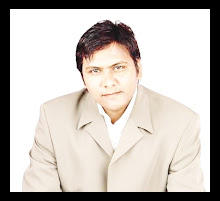Books to read: fictional:
The Lost Symbol - (Thriller)
Dan Brown's new novel, the eagerly awaited follow-up to his #1 international phenomenon, The Da Vinci Code, which was the bestselling hardcover adult novel of all time with 81 million copies in print worldwide, will be published in the U.S. and Canada by Doubleday on September 15, 2009.THE LOST SYMBOL will have a first printing of 5 million copies, and it will once again feature Dan Brown's unforgettable protagonist, Robert Langdon. Brown's longtime editor, Jason Kaufman, Vice President and Executive Editor at Doubleday said, "Nothing ever is as it first appears in a Dan Brown novel. This book's narrative takes place in a twelve-hour period, and from the first page, Dan's readers will feel the thrill of discovery as they follow Robert Langdon through a masterful and unexpected new landscape. THE LOST SYMBOL is full of surprises."
Dan Brown's popularity continues to grow. The film of The Da Vinci Code was a #1 box office smash when it was released by Columbia Pictures in May 2006 with Ron Howard directing and Tom Hanks starring as Robert Langdon. Box office receipts were $758 million.
Non-fictional: Business:
The Accidental Billionaires: The Founding of Facebook: A Tale of Sex, Money, Genius and Betrayal.
The high-energy tale of how two socially awkward Ivy Leaguers, trying to increase their chances with the opposite sex, ended up creating Facebook.
Today, Zuckerberg remains the major shareholder and CEO of a company now valued anywhere between $8 billion and $15 billion. The Accidental Billionaires is the story of Facebook’s founding, from the fall of 2003, when Zuckerberg first came up with idea of his online social network, to the fall of 2005, when the Harvard dropout (Bill Gates 2.0) got the company funded by some Silicon Valley venture capitalists.
The Accidental Billionaires is a compulsively readable story of innocence lost–and of the unusual creation of a company that has revolutionized the way hundreds of millions of people relate to one another.WINNING:
Winning is destined to become the bible of business for generations to come. It clearly and succinctly lays out the answers to the most difficult, important questions people face both on and off the job. Welch's objective is to speak to people at every level of the organization, in companies large and small. His audience is everyone from line workers to college students and MBAs, from project managers to senior executives. He describes his core business principles and devotes most of Winning to the real "stuff" of work--how to lead, hire, get ahead, even write a budget. Welch's optimistic, no excuses, get-it-done mind set is riveting. His goal is to help anyone and everyone who has a passion for success.Jack Welch began his career with the General Electric Company in 1960, and in 1981 became the company's eighth Chairman and CEO. During his tenure, GE's market capitalization increased by $400 billion, making it the world's most valuable corporation. In 1999, Fortune named him the "manager of the century," and the Financial Times recently named him one of the three most admired business leaders in the world today. Upon retiring from GE in 2001, Mr. Welch published his internationally best-selling autobiography Jack: Straight from the Gut. He now teaches at MIT's Sloan School of Management and speaks to business leaders and students around the world.
The Fortune At The Bottom Of Pyramid
(By: C.K. Prahalad)
The world's most exciting, fastest-growing new market? It's where you least expect it: at the bottom of the pyramid. Collectively, the world's billions of poor people have immense entrepreneurial capabilities and buying power. You can learn how to serve them and help millions of the world's poorest people escape poverty.
It is being done—profitably. Whether you're a business leader or an anti-poverty activist, business guru Prahalad shows why you can't afford to ignore "Bottom of the Pyramid" (BOP) markets. The market for goods and services at the bottom of the pyramid is enormous and under utilized.
Growth has been misguidedly focused on ownership rather than access, on the luxury market or on copying “best practices.” These strategies can only account for a portion of revenue and efficiency over time. On the other hand, the BOP is enormous with almost limitless growth potential. C.K. Prahalad says serving the bottom of the pyramid is the “next practice,” the challenge that will lead to a radical leap forward.







No comments:
Post a Comment